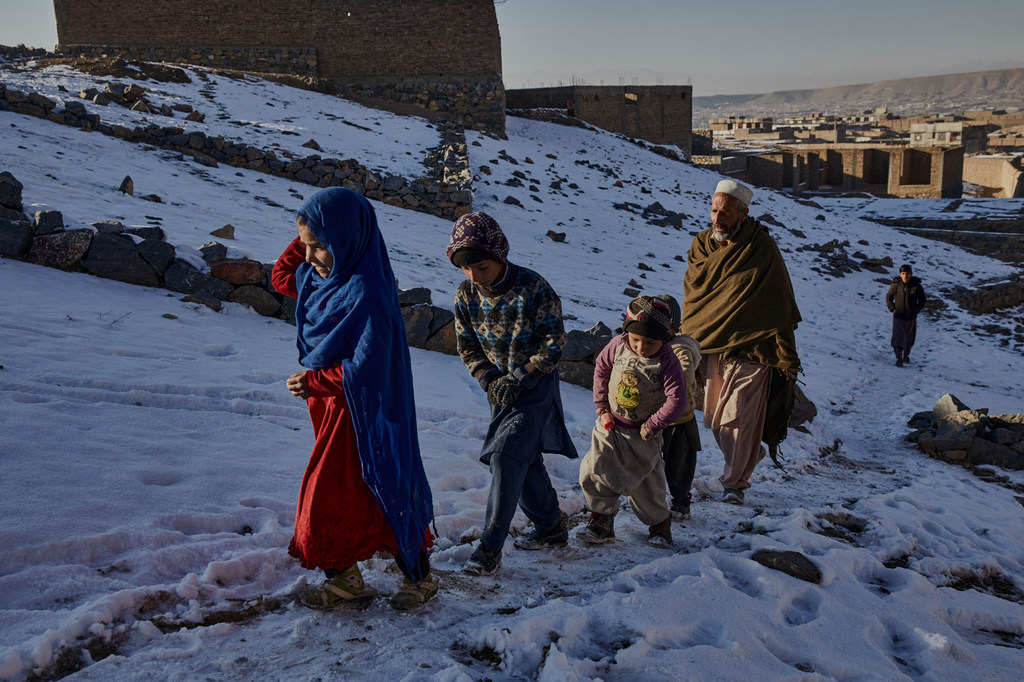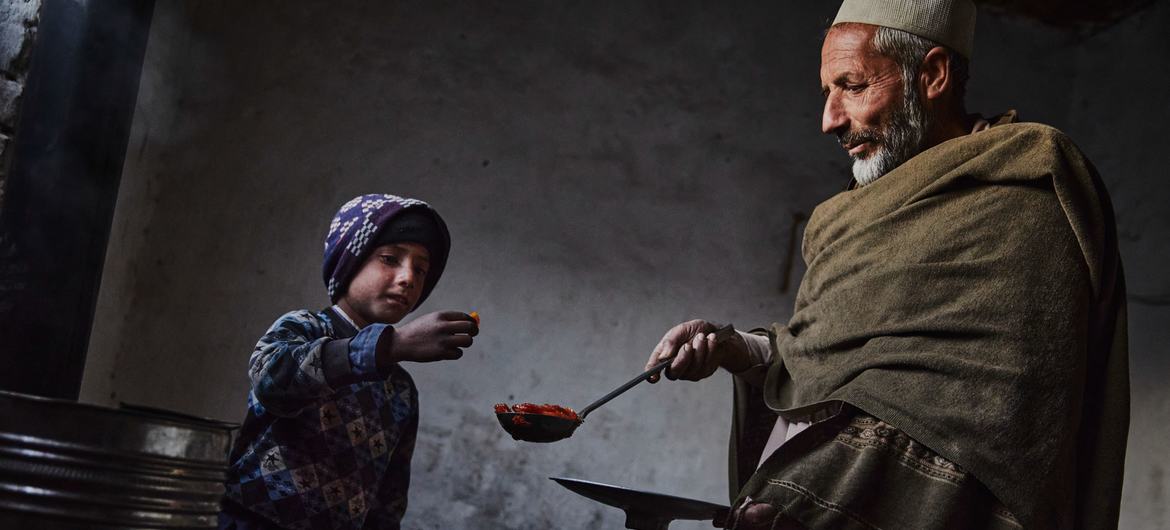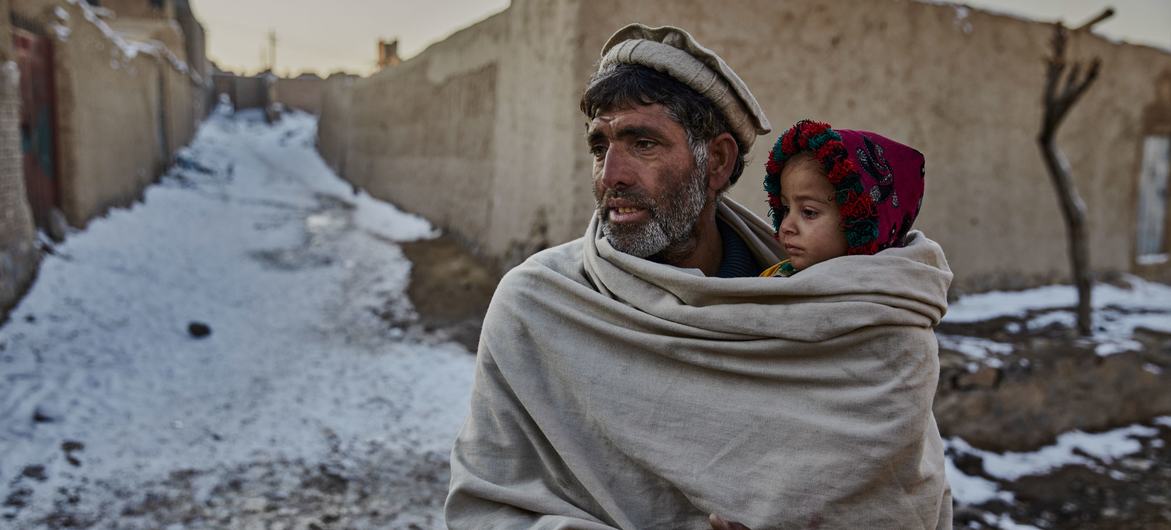Afghanistan: UN launches largest single country aid appeal ever
 The UN and partners launched a more than $5 billion funding appeal for Afghanistan on Tuesday, in the hope of shoring up collapsing basic services there, which have left 22 million in need of assistance inside the country, and 5.7 million people requiring help beyond its borders.
The UN and partners launched a more than $5 billion funding appeal for Afghanistan on Tuesday, in the hope of shoring up collapsing basic services there, which have left 22 million in need of assistance inside the country, and 5.7 million people requiring help beyond its borders.
Speaking in Geneva, UN Emergency Relief Coordinator Martin Griffiths said that $4.4 billion was needed for the Afghanistan Humanitarian Response Plan alone, “to pay direct” to health workers and others, not the de facto authorities.
UN High Commissioner for Refugees Filippo Grandi called for $623 million, to support refugees and host communities in five neighbouring countries, for the Afghanistan Situation Regional Refugee Response Plan.
“Today we are launching an appeal for $4.4 billion for Afghanistan itself for 2022,” said Mr. Griffiths. “This is the largest ever appeal for a single country for humanitarian assistance and it is three times the amount needed, and actually fundraised in 2021.”
Needs could double
The scale of need is already enormous, both UN officials stressed, warning that if insufficient action is taken now to support the Afghanistan and regional response plans, “next year we’ll be asking for $10 billion”.
Mr. Griffiths added: “This is a stop-gap, an absolutely essential stop-gap measure that we are putting in front of the international community today. Without this being funded, there won’t be a future, we need this to be done, otherwise there will be outflow, there will be suffering.”
Rejecting questions that the funding would be used to support the Taliban’s grip on de facto government, Mr. Griffiths insisted that it would go directly into the pockets of “nurses and health officials in the field” so that these services can continue, not as support for State structures.
UN aid agencies describe Afghanistan’s plight as one of the world’s most rapidly growing humanitarian crises.
According to UN humanitarian coordination office OCHA, half the population now faces acute hunger, over nine million people have been displaced and millions of children are out of school.

© UNHCR/Andrew McConnellDisplaced families face a harsh winter and food shortages in Kabul, Afghanistan.
Youngsters’ plight
Asked to describe what might happen if sufficient support was not forthcoming, the UN emergency relief chief replied that he was particularly concerned for one million children now facing severe acute malnutrition. “A million children – figures are so hard so grasp when they’re this kind of size – but a million children at risk of that kind of malnutrition if these things don’t happen, is a shocking one.”
But humanitarian agencies and their partners who will receive the requested funding directly can only do so much, Mr. Griffiths explained, before reiterating his support for the 22 December UN Security Council resolution that cleared the way for aid to reach Afghans, while preventing funds from falling into the hands of the Taliban.
“Humanitarian agencies inside Afghanistan can only operate if there’s cash in the economy which can be used to pay officials, salaries, costs, fuel and so-forth,” he said. “So, liquidity in its first phase is a humanitarian issue, it’s not just a bigger economic issue.”
Stave off disease, hunger
He added: “My message is urgent: don’t shut the door on the people of Afghanistan. Humanitarian partners are on the ground, and they are delivering, despite the challenges. Help us scale up and stave off wide-spread hunger, disease, malnutrition and ultimately death by supporting the humanitarian plans we are launching today.”
Highlighting the need to avoid a wider regional crisis emanating from Afghanistan, UNHCR chief Grandi, insisted that what was needed most, was “to stabilize the situation inside Afghanistan, including that of displaced people who are displaced inside their country. Also, to prevent a larger refugee crisis, a larger crisis of external displacement.”
Nonetheless, Afghanistan’s immediate neighbours had sheltered vulnerable Afghans for decades, Mr. Grandi explained, as he appealed for $623 million in funding for 40 organizations working in protection, health and nutrition, food security, shelter and non-food items, water and sanitation, livelihoods and resilience, education, and logistics and telecoms.

© UNHCR/Andrew McConnellDisplaced families face a harsh winter and food shortages in Kabul, Afghanistan.
Decades of shelter
No-one should forget “that there is a regional dimension to this crisis, represented by the Afghan refugees but also Afghans with many other ‘stay’ arrangements in neighbouring countries in particular,” Mr. Grandi said, “especially in Pakistan and Iran that have hosted Afghans for more than 40 years, but also Central Asian States.”
Since the Taliban takeover last August, women’s and girls’ rights have continued to come under attack, OCHA noted in a statement, “while farmers and herders are struggling amid the worst drought in decades and the economy is in freefall”.
Rights reminder
On the issue of protecting fundamental rights, Mr. Griffiths underlined the fact that UN humanitarians were continuing to hold “conversations” with Afghanistan’s de facto authorities at a national and sub-national level, on issues such as aid and education access for all.
Echoing that message, UN refugee chief Mr. Grandi noted that humanitarians on the ground were well aware of the importance of stressing the need to protect the rights of minorities and other vulnerable Afghans.
“Our colleagues are there every day, and that’s what they talk about every day; they certainly talk about access, and delivery and needs, but they also talk about women at work, women in school – girls in school – rights of minorities, but it’s that space that we need to preserve.”



